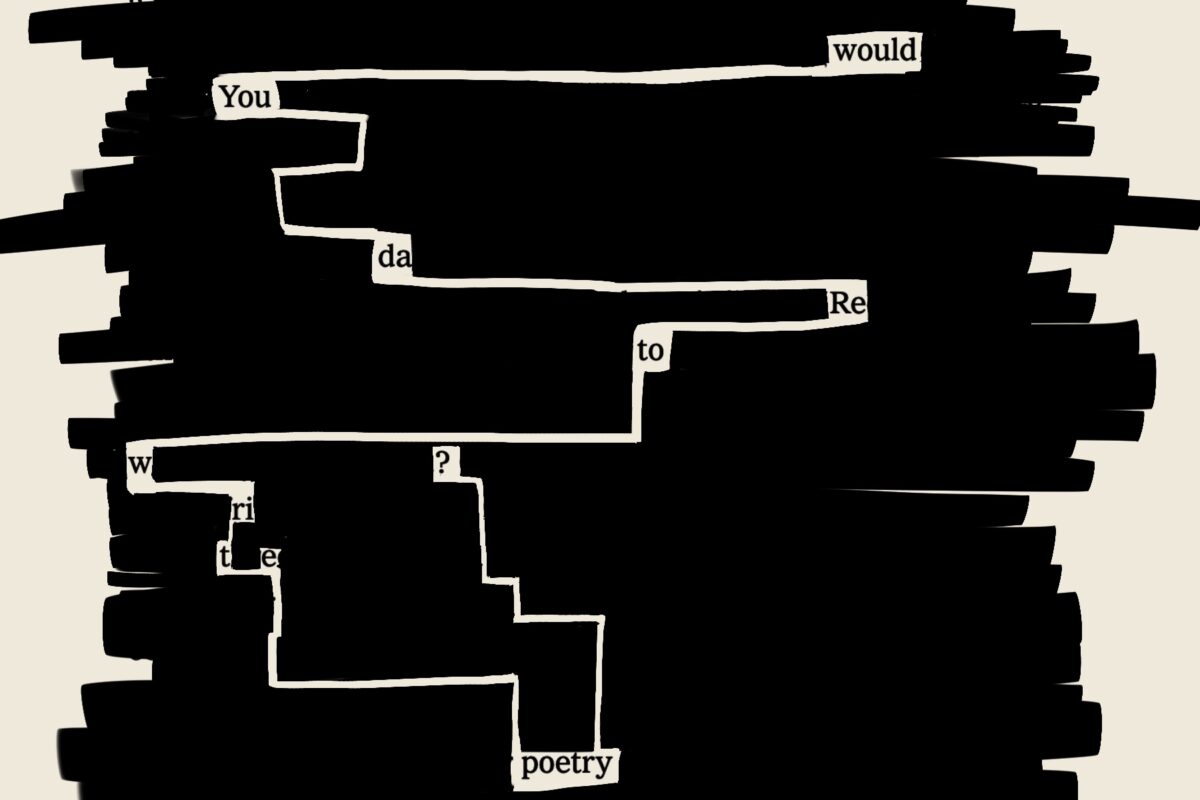Newspaper Blackout is a book that touches on a very sensitive topic: poetry.
Poetry is one of those subjects you either love or hate (and a lot of people hate). Even if you are a poetry lover, it is easy to agree that poems can be challenging.
When it comes to poetry books, simply reading the text isn’t enough to grasp their significance. Poetry demands more than passive reading, it asks you to dig. The reader needs to sweat over lines, wrestle with metaphors, and stare into the abyss of ambiguity hoping for meaning to emerge and make sense.
And even then, sometimes the poem doesn’t show its face clearly. It needs more time for “rumination” in your mind.
For some, that’s the thrill. For others, it’s why poetry feels like a locked door with no key, an incognito, frustrating experience. But what if poetry could be playful? Even fun? That’s the magic of Newspaper Blackout by Austin Kleon.
Kleon is known as an author who explores creativity and how to get in shape with your own creative process. He has written a series of books on this topic, and in Newspaper Blackout, he shows the readers how to apply their own advice to make something fresh and exciting.
All the poems in the book were created by redacting newspaper articles with a permanent marker. Instead of creating from a blank page, Kleon began with one already full of words and carved his way to clarity. He grabbed a copy of the New York Times, picked a section and an article, boxed the words he liked, blacked out with markers the words he didn’t need and – ta da! – a new poem was born.
Starring a blacked-out page with few visible words makes you focus solely on the poem itself. It’s a visual and poetic exercise that invites the reader to think about language, poetry and emotion.
In this way, Newspaper Blackout becomes about reading and discovering, both for the writer and the reader. As Kleon writes in the book’s introduction “All I knew was that it was fun to watch those words disappear behind that fat black marker line. It didn’t feel like work; it felt like play.”
A sports column becomes a meditation on loneliness, a political report transforms into nostalgic words about childhood. Kleon proves that inspiration is hiding in plain sight, waiting for you to grab a marker and claim it.
That’s exactly what Newspaper Blackout is ultimately about: making new poets.
After exploring many themes like childhood, creativity, adult life, love, memory and more, the book ends with an invitation for the reader (yes, the reader) to become an author. Kleon included a full section explaining the method and how the reader can keep going with it, again and again. It’s an invitation (or maybe even a challenge) for anyone.
Moreover, the book reminds us that creating something meaningful doesn’t always require grand gestures or perfect conditions. Sometimes, it starts with what’s already around you: an old scrap of paper, a black marker, an ordinary morning.
Kleon shows how constraints can actually fuel imagination. By limiting himself to existing text, he opens up surprising poetic possibilities. The result is a collection of poems that are witty, strange, poignant, and oddly intimate, like overhearing someone’s thoughts hidden between headlines.


